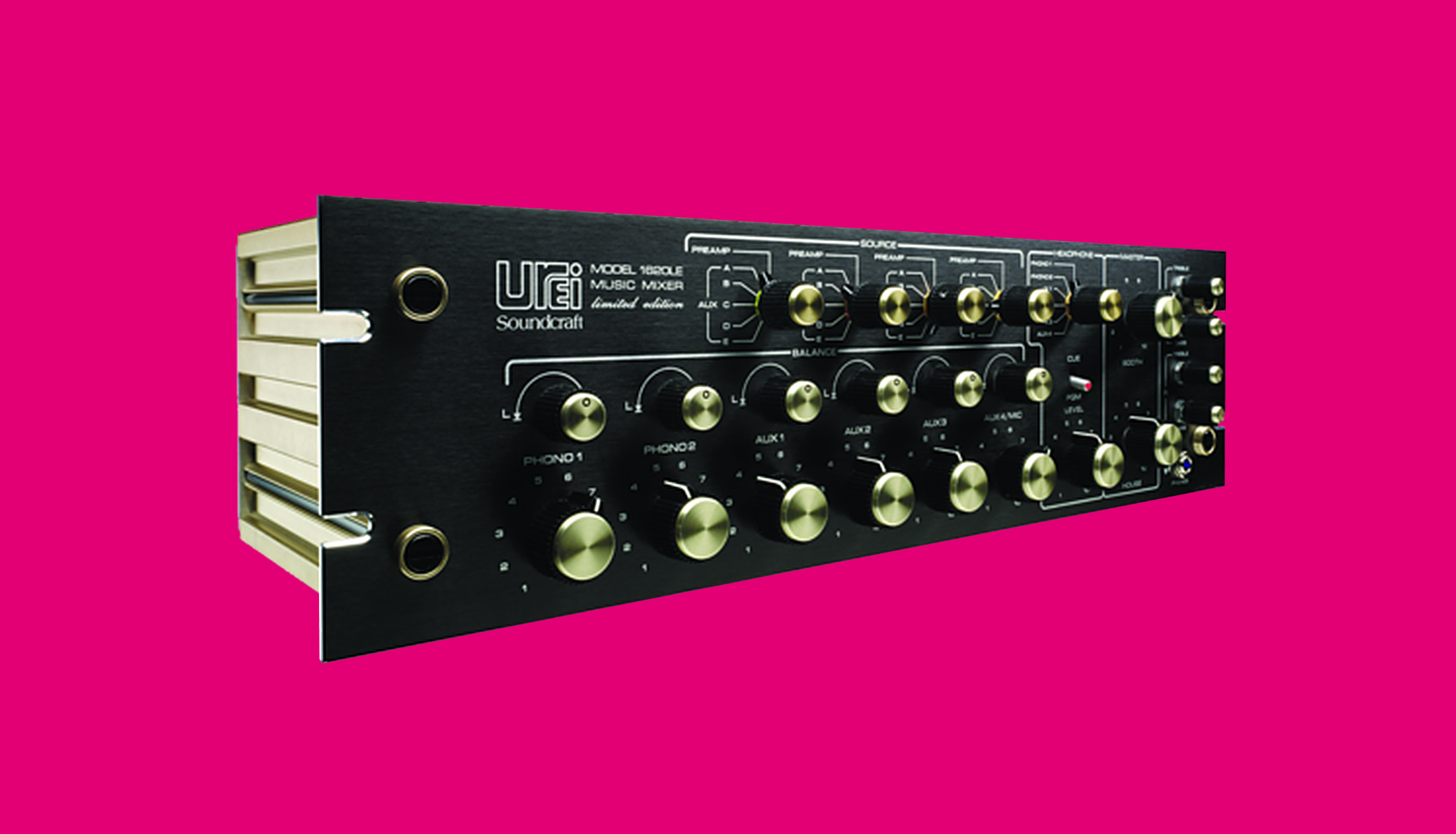
House is a continuation of disco. You can hear that easily in its arrangement and in its sound, which samples and pulls liberally from the popular club music of the ’70s and early ’80s.
And, in fact, many of the first Chicago house records featured interpolated vocal riffs, basslines and melodies cribbed from classic Salsoul, Prelude and West End records.
(There’s no better example of this than Isaac Hayes’, “I Can’t Turn Around“, which famously influenced Farley Jackmaster Funk’s “Love Can’t Turn Around“, and many other tracks of the era.)
Later, as house progressed towards the ’90s, producers turned to new and novel ways of recreating disco’s legacy. The resulting genre, now referred to as “disco house”, includes some very creative tracks that are worth knowing. The following list features some particularly noteworthy examples.
Mitch Winthrop, “Everybody’s Going Disco Crazy” (Everybody’s Much Crazy Records 1991)
I first heard this record at Hamburg’s Front club, where it was a total anthem. At the time, most people weren’t actually disco-crazy anymore, but this was a perfect reminder to never forget where it all came from.
Reese Project, “Direct Me (Joey Negro Disco Blend Mix)” (Network 1991)
Joey Negro was one of the first house producers who aimed to go beyond sampling to produce music that came as close as possible to disco’s original values. His remix of this track by Kevin Saunderson is a good example. There is a lot of careful attention to detail in the way it achieves its anthemic euphoria—just listen to those Syndrum “pew-pew-pews”. He’s since proved himself to be a trustworthy ambassador for disco, which he’s remained ever since.
Nature Boy, “Tobago” (Black Label 1992)
This is Milo from Bristol’s legendary Wild Bunch soundsystem, deconstructing disco source material down to its dark and gritty netherworld. None of the glitz of the sample references survived the process, and the music seemed to kick you out into the alley through the back door rather than sway you in through the velvet rope. I found Ruff Disco Volume One in a bargain bin in the early ’90s, and I think it still sounds totally visionary and unique.
Romanthony, “In The Mix” (Azuli Records 1994)
A tribute to Tony Humphries and the whole New Jersey legacy by Romanthony, one of house music’s greatest producers ever. If there was ever a more convincing argument to never deny your roots and keep them alive in what you are doing, I would like to hear it.
Jump Cutz, “House Luck” (Luxury Service Records 1995)
One of many highlights from the Jump Cutz series, produced by Rob Mello and Zaki Dee. This really shows that often making a good disco house track is not rocket science. Deconstruct source material into several parts. Reconstruct said parts as you please. Watch them go.
The Morning Kids, “Free Lovin’ (Housedream)” (Balihu Records 1996)
As a true disco lover and dancer, Daniel Wang knew that it’s in the early morning hours when the magic of a good night out really unfolds. A rather simplistic meditation compared to his later, vintage syntheziser-led output, this track is based on just a few samples, but it still works a treat when the DJ decides it is finally the right time to switch gears. When it was released, the balearic revival was just a few sunrises away.
Los Jugaderos, “What You Doing To This Girl?” (Jus’ Trax 1996)
A rework of Dazzle’s “You Dazzle Me” which is indeed dazzling. The proven disco evangelists Ashely Beedle and Phil Asher concentrate on mesmerizingly building up the tension and releasing the strings at exactly the right moment. A masterclass in structure.
Turntable Brothers, “Get Ready” (Music Plant 1996)
There once was a seminal live recording archived on deephousepage.com that captured Ron Hardy whipping his floor into a frenzy with an extended reel-to-reel edit of Patti Labelle’s “Get Ready“. This Chicago label already carries the legacy of two legendary windy city clubs in its name: the Muzic Box and the Warehouse, which was later called Power Plant. So it should come as no surprise that most records on Music Plant are straight homages, albeit with banging beats and a freewheeling demeanor with the use of typical Chicago samples. “Get Ready” skips the verse section of the original, heads straight to the climactic chorus and then rides it far into ecstasy.
Moodymann, “I Can’t Kick This Feelin’ When It Hits” (KDJ 1996)
If you play disco, never leave the house without a record made by the Chic Organization LTD. If you play house, the same applies.
Deep Sensation, “Somehow, Somewhere (There’s A Soul Heaven)” (Guidance Recordings, 1998)
Paul Hunter and Colin Gate appeared as Deep Sensation on several US and UK labels and established an approach to disco house that was clearly informed by the UK rare groove and rare soul circuit. In theory, a trick they often used seemed simple: mount a distinctive vocal onto another, similarly distinctive tune and add some house danceability. But it is how immaculately they did this that really set them apart, particularly with the string of records they released on Guidance. Every track they did was so lovingly rearranged that it felt as if they had hired a band—plus an orchestra—and let loose in the studio, conducting the proceedings like the ’70s maestros’ works never happened. Up to this day, you can lift every place up and inject instant weekender credentials into every set you play with those releases. Make sure that you check Paul Hunter’s several other aliases for even more gems.
Freestyle Orchestra, “Twi-Lite” (MAW Records 1998)
Louie Vega reviving an old alias to include his better half, Kenny Dope, probably so that he can supply his trademark beats for perfect measure. The totally tripping loop material is courtesy of unlikely disco converts The Manhattan Transfer, trading their usual jazzy croonage for a journey into the unknown. The track is a perfect example of how the constant repetition of a perfect loop will eventually let your mind slip away.
Sound Stream, “Motion” (Sound Stream 1999)
As a producer, Frank Timm (a.k.a. Sound Stream) is a rare phenomenon. Unfazed by the hustle and bustle of the club music scene, he releases tracks only when he thinks they are ripe, however long that may take. Still, with every release, he is right back on the map again. This may work because his tracks are continuously faultless if you like his sound, even if it has gradually evolved over the years. This track is from his first release, and it established his agenda: isolate and loop a perfect moment in a piece of music, then construct a track with it, and then add your own signature beats—then let it all rule.
Johnick Meets FTL, “A Breath Of Fresh Air (Henry Street Mix)” (West End Records 2004)
Johnick (a duo comprised of Johnny D De Mairo and Nicholas Palermo Jr.) were always devoted to reinterpreting disco, be it with Johnny D’s Henry Street label or with their own productions. They were especially gifted with reassembling and isolating original parts for a streetwise, deep and almost-psychedelic vibe. This has a similarly-hypnotic quality, but it is first and foremost a perfect summer breeze of a track. Almost ten casually-funky minutes float on an impeccable loop that’s lifted by a very sophisticated flute solo.
Jasper Street Co., “Till I Found You” (Basement Boys Records 2004)
The Basement Boys camp from Baltimore is an ever-reliable source for house with a disco stance. This jam sounds like a joyous church service driven by a tight, veteran jazz-funk band that just fell in love with DJ culture. Totally loved up and totally infectious.
Phyllis Hyman, “You Know How To Love (Dimitri From Paris Super Disco Blend)” (Le-Edits Records 2018)
Like Joey Negro, Dimitri From Paris is one of the most revered collectors of disco originals, and his history of editing disco for house purposes goes back for so many years that he is frequently granted access to an ingredient that distinguishes his role as editor from those that just put a streamlined beat to a track for better mixability: multitracks. Of course, if you have all the tracks of the original recording, you can really show your skills as a producer and arranger. And even if purists will always prefer the original, a lot of Dimitri From Paris versions offer a quality level which is at least worthy of comparison. Within France’s long tradition of merging disco and house, Dimitri From Paris obviously came from another school than the seminal heavy filter workouts once initiated by Daft Punk and their affiliates, but sometimes you just need some elegant swing, n’est-ce pas?
>> https://www.electronicbeats.net/15-essential-disco-house-tracks-every-head-know/






Leave A Comment
You must be logged in to post a comment.